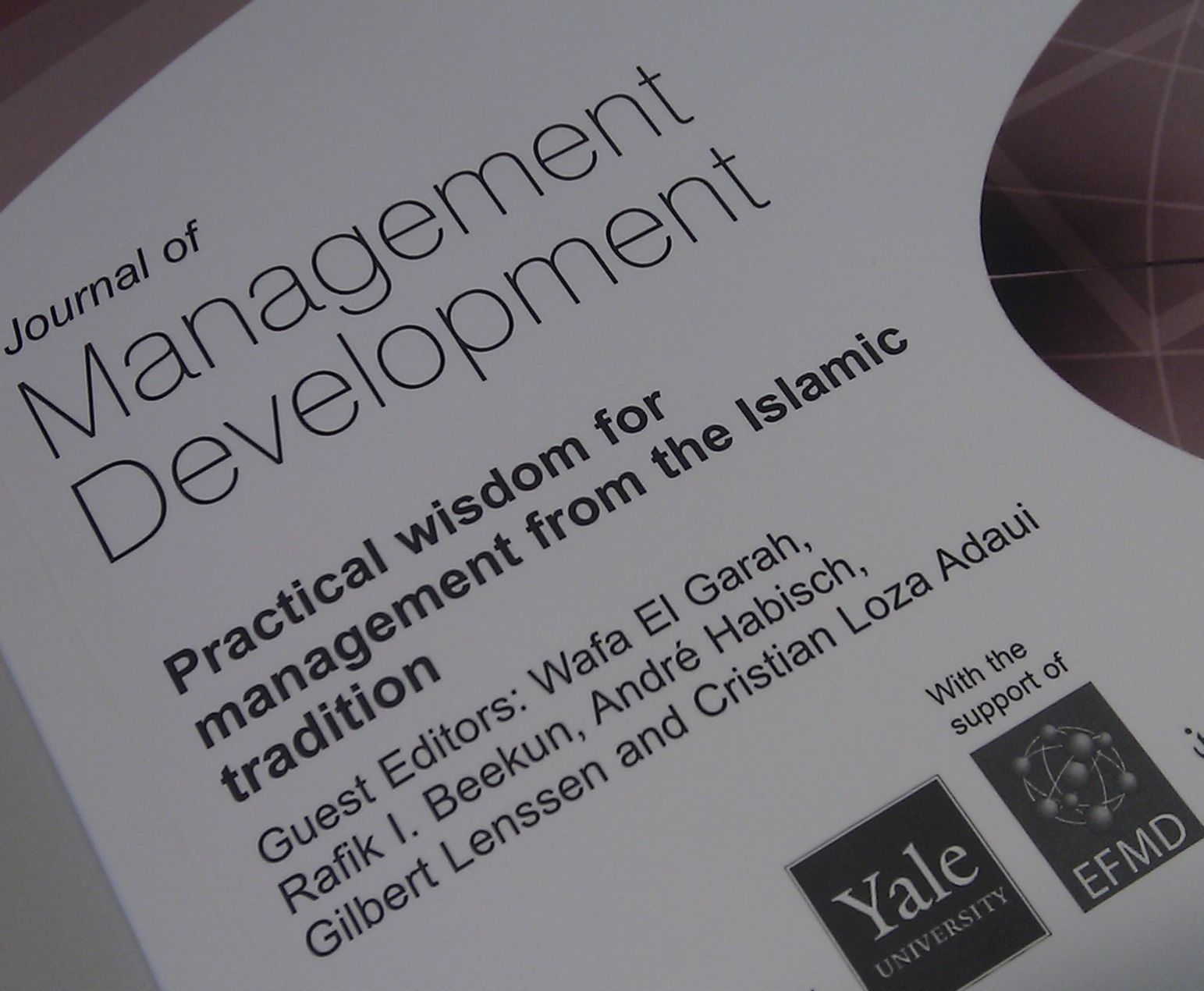These are brief excerpts from a Panel Discussion on Transnational Education at the World Islamic Economic Forum:
Abschied vom Zahnräder Vorsitz
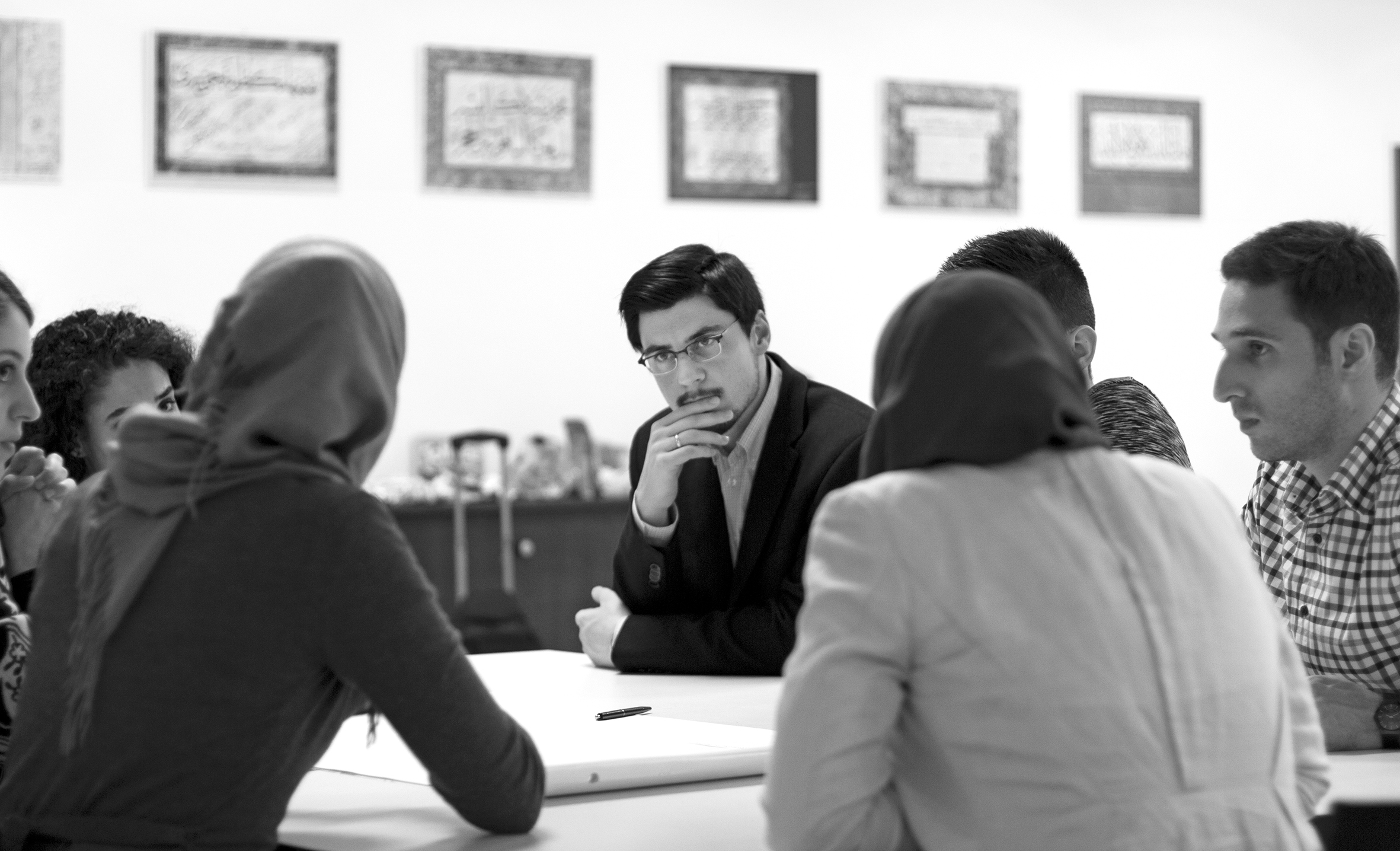 Für mich war und ist wichtig, dass man dann geht, wenn man kann; nicht, wenn man muss. Und so verabschiede ich mich jetzt vom Posten des Vorstandsvorsitzenden bei Zahnräder.
Für mich war und ist wichtig, dass man dann geht, wenn man kann; nicht, wenn man muss. Und so verabschiede ich mich jetzt vom Posten des Vorstandsvorsitzenden bei Zahnräder.
Die wichtigste und erste Aufgabe bei Zahnräder ist es, einen Nachfolger zu finden. Ich denke, dass haben Abdulkadir Topal, Kübra Gümüşay und ich getan. Es gibt ein großartiges Nachfolge-Team mit Ibrahim Kahraman und Said Haider im Vorstand, das Zahnräder verändern und voranbringt iA. Im Kernteam sind außerdem so außerordentliche Persönlichkeiten wie Soufeina Hamed, Tuğba Uzak, Levent Kılıç, Büşra Todil, Nezar Mahmoud, Rafiqa Zahra und Suna Damat. Knapp 100 – wie ich finde ganz besondere – Personen wirken bei Zahnräder mit. Abdulkadir Topal, Kübra Gümüşay und ich werden Zahnräder im Beirat erhalten bleiben.
Seit dem ersten Treffen im März 2010 in Oxford haben wir viel erreicht. Ein Blick auf die Zahnräder Website spricht Bände. Zahnräder hat sich etabliert als sozialer Inkubator für Social Entrepreneurship von Muslimen für die Gesellschaft. Wir unterstützen unzählige Projekte finanziell und ideell und haben Veranstaltungen, die bewegen.
Unser Inkubator ist ein größtenteils virtuelles Gründer- und Innovationszentrum. Soziales Unternehmertum bzw. Social Entrepreneurship befasst sich mit innovativen, meist markt-orientierten Lösungsansätzen, verknüpft mit einer Leidenschaft für ökologische und soziale Nachhaltigkeit. Social Entrepreneurship ist damit eine unternehmerische Tätigkeit, die auf einen positiven gesellschaftlichen Wandel in den Bereichen Bildung, Armut, Umwelt oder Gesundheit zielt.
Soziales Unternehmertum im Zahnräder Netzwerk beruht auf den drei Säulen: Wert, Werte und spirituell-religiöse Weiterentwicklung. Wir streben nach ökonomischer (Wert), ökologisch-sozialer (Werte) und spirituell-religiöser Nachhaltigkeit. Wir unterstützen die muslimischen SozialunternehmerInnen bei der Verwirklichung ihrer vielfältigsten Projekte – von der Idee über die Umsetzung bis hin zum gereiften Ergebnis. Getreu dem Motto: von Muslimen für die Gesellschaft. Für mehr Teilnahme und Teilhabe an unserer Gesellschaft.
Zahnräder sind jedoch nicht die Strukturen oder beschriebenen Prozesse. Zahnräder sind die unglaublich und unersättlich leidenschaftlichen Menschen, die sich mit Körper, Herz und Verstand vollends der nachhaltigen gesellschaftlichen Veränderung widmen. Es sind solche Menschen, die das Mitarbeiten bei Zahnräder wie auch die Teilnahme an den Konferenzen zu einem Erlebnis machen, das ansteckt. Denn sie schafft eine Dynamik des Miteinander Füreinander.
Zahnräder ist intern wie extern gereift zu einer Plattform für professionelle Weiterbildung und Entwicklung sowie nachhaltige Betreuung und Unterstützung. So haben wir interne Weiterbildungsprozesse wie Online-Seminare, genannt Webinare, und speziell entwickelte Leitfäden für unsere TeamleiterInnen. Dazu bieten wir Schulungen und Workshops für Mitwirkende an, Module können z.B. sein Digital Work, Corporate Identity, E-Teams, Leadership, Religion & Wirtschaft, Islamisches Entrepreneurship sowie Vision & Innovation.
Zahnräder ist also ein Ort, wo Menschen lernen und lehren. Dabei möchten wir, gemeinsam bewusst Handeln und bewusstes Handeln ermöglichen und ermutigen. Ziel ist ein nachhaltiges und wertevolles Denken und Agieren in unserer Gesellschaft zu fördern. Wir suchen Menschen, die etwas bewegen möchten und dabei bewegen wir sie. Letztendlich ist Zahnräder gelebte Veränderung.
Wir sind eine Symbiose aus den Werten, die wir haben, und der Gesellschaft, in der wir leben und die wir mitgestalten. Dies ist unsere Identität, die wir erleben und aktiv leben. Wir werden weiter an uns arbeiten – als Individuum, Gemeinschaft und als Institution. Es gibt noch viel zu tun. Ich denke, Zahnräder ist hierfür in guten Händen.
Wir können an uns und durch uns wirken – das Ergebnis entsteht und besteht aus Gottvertrauen.
Veröffentlicht im Dezember 2013 hier.
Foreign Policy
A brief interview I gave to Diplomatic Courier as a chosen Top 99 under 33 Foreign Policy Leader:
Describe the impact on foreign policy you have made in your current/past positions.
Through talks, writings and 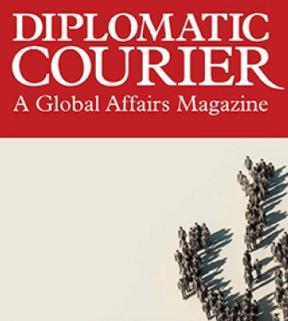 consulting on topics such as innovation, (social) entrepreneurship, and strategy, I hope I have provided tools to tackle and reconceptualize global societal problems towards value-based (foreign) policies. Most recently, I have co-edited a book in German called 7 Virtues Reloaded. Members of the Think Tank 30 of the Club of Rome have applied wisdom, moderation, courage, justice, hope, faith, and love to current societal topics such as the educational system, data abuse, energy sustainability, or social and cultural struggles of meaning. We reflect on the present to change the world of tomorrow with virtues from the past.
consulting on topics such as innovation, (social) entrepreneurship, and strategy, I hope I have provided tools to tackle and reconceptualize global societal problems towards value-based (foreign) policies. Most recently, I have co-edited a book in German called 7 Virtues Reloaded. Members of the Think Tank 30 of the Club of Rome have applied wisdom, moderation, courage, justice, hope, faith, and love to current societal topics such as the educational system, data abuse, energy sustainability, or social and cultural struggles of meaning. We reflect on the present to change the world of tomorrow with virtues from the past.
What personal contribution to foreign policy are you most proud of?
Transferring knowledge and creating linkages across borders and boundaries. I have co-founded the social incubator Zahnräder Network based on my research on academic entrepreneurship in the UK, and then applied it to the German Muslim context. Zahnräder encourages and enables social entrepreneurship, has been supported, for example, by the British Council, Youth for Europe, and Ashoka Changemakers, and won the Social Entrepreneurship Academy Public Choice Award in 2012.
What is your vision of foreign policy in the 21st Century?
I think our understanding of both terms–“foreign” and “policy” will change due to much more fluid boundaries, which are leading to a complex web of engaged stakeholders. Foreign policy in the 21st century must be value-driven, concentrating on solving societal problems rather than focusing on narrow national interests.
What challenges need to be overcome to create better foreign policy? What leadership traits are needed for this?
Two challenges–and magnificent opportunities at the same time–are the incorporation of diverse actors and the employment of new technologies to facilitate manifold cross-border engagement. As geographical and policy borders become blurred, FP leaders need more diverse professional backgrounds to succeed in their complex and diverse new roles.
My reaction on the Saïd Business School website: “I feel very honoured to have been selected and hope that my research and work contributes to sustainable social change. Oxford, and Saïd Business School in particular provide a magnificent ecosystem in which to generate ideas that shape society.”
7 Virtues Reloaded
We reflect on the present to change the world of tomorrow with virtues from the past.
The book “7 Virtues Reloaded” which I co-edited together with Katharina Diel-Gligor and Wolfgang Gründinger is finally out! Members of the Think Tank 30 of the Club of Rome have applied wisdom, moderation, courage, justice, hope, faith and love to current societal topics such as the educational system, data abuse, energy sustainability or social and cultural struggles of meaning. We reflect on the present to change the world of tomorrow with virtues from the past. Foreword by Ernst Ulrich von Weizsäcker. A review in English by New Books in German can be found here and in German here.
You can purchase the book e.g. from Amazon, but if you wish to make the publisher a favour, buy it directly from the Vergangenheitsverlag.
Und da das Buch “7 Tugenden Reloaded” auf Deutsch erscheint:
Im Vorwort schreibt der Co-Präsident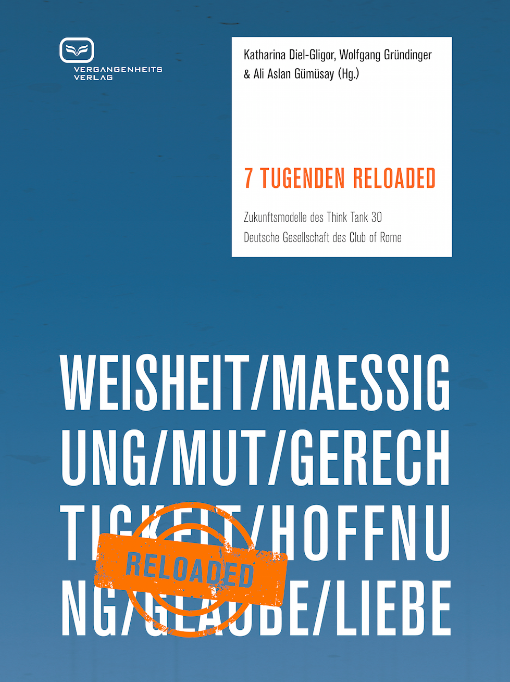 des Club of Rome Ernst Ulrich von Weizsäcker: “Das Buch greift aktuelle gesellschaftspolitische Probleme wie Bildungsmisere, Generationenkampf, Datenmissbrauch und Wutbürgertum sowie Energiewende, soziale Sinnkrise und Kulturkampf auf und orientiert sich bei der Suche nach werteorientierten Lösungen an historisch überlieferten Tugenden.”
des Club of Rome Ernst Ulrich von Weizsäcker: “Das Buch greift aktuelle gesellschaftspolitische Probleme wie Bildungsmisere, Generationenkampf, Datenmissbrauch und Wutbürgertum sowie Energiewende, soziale Sinnkrise und Kulturkampf auf und orientiert sich bei der Suche nach werteorientierten Lösungen an historisch überlieferten Tugenden.”
Das Teaser-Video zum Buch hier. Ein Video von Arte Future zum Buch gibt es hier.
Aus dem Klappentext:
Weisheit, Gerechtigkeit, Mäßigung und Mut gegen Bildungsmisere, Generationenkampf, Datenmissbrauch und Wutbürgertum? Hoffnung, Glaube und Liebe als Visionen für Energiewende, soziale Sinnkrise und Kulturkampf? Die Welt ist in Bewegung. Wir müssen uns in der Hektik des immer schnelleren Wandels ständig neuen Herausforderungen stellen und sind dabei auf der Suche nach Orientierung und nachhaltigen Lösungen. Aber wonach sollen wir uns richten, wenn nur sicher ist, dass nichts bleibt, wie es ist? Die jungen Köpfe des Think Tank 30 der Deutschen Gesellschaft des Club of Rome schauen genauer hin und entwickeln Zukunftsmodelle, um die Welt von morgen mit klassischen Tugenden zu gestalten. Ein herausforderndes Debattenbuch: intelligent, visionär, aktivierend.
Apropos Kapitel Weisheit: Hier mein Wunsch an unsere Bildungsministerin Frau Wanka, zunächst erschienen auf Zeit Online, und hier ein Post zu Bildung & der Gründung einer Meta-Universität.
Productive Innovation
Blogpost first published at the Skoll Centre for Social Entrepreneurship Website.
Making science useful
Academia is far too often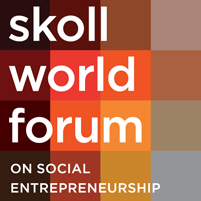 removed from practice. Thousands of books and articles are written about innovation and practitioners feel inclined to ask: so what? Johanna Mair, Professor of Organization, Management and Leadership at the Hertie School of Governance and Academic Editor of the Stanford Social Innovation Review and Christian Seelos, a visiting scholar at the Stanford University Center on Philanthropy and Civil Society who previously directed the IESE Platform for Strategy and Sustainability, feel and understand this frustration. In a session on the balancing act of innovation and scale at the Skoll World Forum they engage with the audience as a step towards bridging these diverging worlds: by intervening more productively in the world in a scholarly way.
removed from practice. Thousands of books and articles are written about innovation and practitioners feel inclined to ask: so what? Johanna Mair, Professor of Organization, Management and Leadership at the Hertie School of Governance and Academic Editor of the Stanford Social Innovation Review and Christian Seelos, a visiting scholar at the Stanford University Center on Philanthropy and Civil Society who previously directed the IESE Platform for Strategy and Sustainability, feel and understand this frustration. In a session on the balancing act of innovation and scale at the Skoll World Forum they engage with the audience as a step towards bridging these diverging worlds: by intervening more productively in the world in a scholarly way.
From innovation as an ideology to innovation as a process
Much scholarly attention concentrates on the creation of social ventures neglecting established organizations and the question of how to innovate continuously. Mair and Seelos stress that innovation needs to be seen as a process, not an ideology: “Innovation is not the holy grail.” We often overrate the value of innovation, undervalue the importance of failed innovation and underappreciate the difficulty of innovation. Innovation is a complex process and a long and continuous development from idea over evaluation to experimentation. Along the way organizations face many pitfalls. Ideas often never get started; or end too early. Reasons are, for example, a strong target focus, power struggles, fearing punishment and potential failures, a homogenous workforce and too much distance of managers from the frontline.
Productive innovation
Andrew, a Skoll World Forum attendee, comments: “The ideas are there, but opportunities are not.” Many heads nod. The remark hits one of the core problems that Mair and Seelos convey: Organisations need innovation routines and processes. Ideas are normally not enacted by individuals. They require groups and both formal and informal engagement. Innovation consists of idea generation, evaluation, experimentation and enactment. Within this difficult and complex process, organisations should artistically balance innovation and scale by exploiting past and targeting future innovations given the availability of resources – in a process of productive innovation.
Für eine Humboldt’sche Bildungsrenaissance
Mein Wunsch an Frau Wanka
Liebe Frau Wanka, ihrer Vorgängerin Frau Schavan mag der Doktortitel berechtigterweise zum Verhängnis geworden sein, dennoch ist zu betonen: Ich möchte nicht in einer Gesellschaft leben, dessen Bildungsziel der Bildungsabschluss oder der Bildungstitel ist. Ziel von Bildung sollte eine Art Humboldt’sche Vervollkommnung der Persönlichkeit sein, welche die Gesellschaft nachhaltig prägt. Wir sind Knowmaden und brauchen lebenslange Bildungsabonnements, um kontinuierlich aber zeitlich, örtlich und inhaltlich flexibel lernen und wirken zu können. Denn Bildung von heute ist morgen schon wieder Schnee von gestern. Wir müssen abwägen zwischen gesellschaftlicher Bildungseinheit und individueller Bildungsfreiheit, um so stetigen Wandel zu erlauben und wandelnde Stetigkeit zu erreichen. Liebe Frau Wanka, ich wünsche mir eine Bildungsrenaissance – für eine weise, nachhaltige und wertreiche Bildung.
Der Text erschien am 14.02.2013 auf Zeit Online. Weitere Wünsche
Zahnräder Netzwerk – ein Update
Zahnräder ist eine Plattform für soziale Innovation. Wir helfen bei der Verwirklichung von den unterschiedlichsten Projekten – von der Idee über die Umsetzung bis zum gereiften Ergebnis. Wir fördern Soziales Unternehmertum, also Social Entrepreneurship, getreu dem Motto: von Muslimen für die Gesellschaft. Für mehr Teilnahme & Teilhabe an unserer Gesellschaft.
Zahnräder extern: Konferenz
Die nächste Konferenz findet im April in Heidelberg statt – man kann sich noch hier anmelden. Gewinner aus den letzten Jahren waren u.a. CubeMag, Hima, i,slam, Muhammadhoeren, Muslime.TV und StudyCoach 2.0. Wir bieten Ideen und Projekten Motivation, Wissen, Kontakte und finanzielle Unterstützung an (die vier Formen von Kapital in der Tabelle unten). Einige Projekte konnten durch das Preisgeld umgesetzt werden, andere Projekte brauchten noch einen Schuss Motivation oder Projektwissen, um den nächsten Schritt einzuleiten. Oft kamen auch Personen mit ähnlichen Ideen zusammen und haben sich daran gemacht, diese dann deutschlandweit umzusetzen. Aus zwei lokalen Ideen wurde so ein wirkliches und wirkendes bundesweites Projekt, das Deutschland mitbewegt. Dieses Jahr wird es übrigens Preisgelder von über 3000 Euro geben.
Und tolle ZahnräderX-Veranstaltungen bieten Zahnräder lokal an, z.B. in Berlin und NRW– vor der Haustür sozusagen.
| Ability | Usability | |
| Internal | Human Capital | Cultural & Motivational Capital |
| External | Social Capital | Financial Capital |
Zahnräder-Historie
Darum geht’s: Intern wie extern möchten wir einander „bewegen“ – innovativ, kreativ, professionell: ein Netzwerk muslimischer Entrepreneure. Zahnräder begann im März 2010 vor knapp 3 Jahren mit diesem Wunsch nach Bewegung. Nach einem ersten dreiköpfigen Treffen im März in Oxford waren wir im Mai bereits 7 – 7 Gründer. Und wie auch heute in vielen Teams haben wir uns lange Zeit nicht gesehen, sondern nur via Skype kommuniziert. 3 Jahre später sind wir knapp 100 Mitwirkende.
Unsere Partner
Wir haben vielfältige Partner: Jugend für Europa, British Council, das AKE Bildungswerk, die Sawasya Stiftung, der VdM und Ashoka Changemakers sind einige unserer Unterstützer. Letztes Jahr haben wir darüber hinaus den die Social Entrepreneurship Akademie Act for Impact Publikumspreis im Wert von 5000 Euro gewonnen. Zahnräder sagte: Danke.
Zahnräder intern: Institutionalisierter Weiterbildungsprozess
Zahnräder besteht aus einem Zwei-Säulen-Modell. Extern untersützen wir bei der Verwirklichung von Projekten. Intern bieten wir die Möglichkeit, einen Lern- und Mitwirkungsprozess zu durchlaufen und so nicht nur die Gesellschaft sondern auch sich nachhaltig zu prägen: vom Teammitglied, über die Teamleitung bis hin zum Kernteam.
Wir sind dabei matrixartig organisiert und jedes Zahnrad kann mehrere Bereiche durchlaufen. Unsere Projektgruppen sind die Konferenzorganisation, ZahnräderX und der Think Tank. Unsere funktionalen Gruppen sind IT, Presse, Personalwesen und Finanzen. Jedes Jahr planen wir diese Gruppen um einen Strang zu erweitern bzw. diese Gruppen auszubauen.
Quo vadis?
Wir werden den Entwicklungsprozess verstärkt institutionalisieren. Zahnräder durchlaufen unterschiedliche Stadien: vom Recruiting über Weiterbildung bis zum Exit und Alumni-Status. Wir suchen Menschen, die etwas bewegen möchten und wir bewegen sie. Das Recruiting bietet neuen Zahnrädern eine Aufnahme und Einstieg in die Organisation von Zahnräder. Weiterbildungsbausteine verknüpfen Theorie mit Praxis. Module können z.B. sein Digital Work, Corporate Identity, E-Teams, Leadership, Religion & Wirtschaft, Islamisches Entrepreneurship, Vision & Innovation.
Geplant ist eine Internationalsierung der Tätigkeiten. Dieses Jahr konzentrieren wir uns auf den deutschsprachigen Raum. So findet unsere Konferenz dieses Mal auch weiter südlich statt, um so die Anfahrt aus der Schweiz und aus Österreich zu erleichtern. In einigen Jahren könnten dann Kooperationen und Partnerschaften entstehen, die verstärkt europäisch und global sind. Mit unserem Unterstützer Jugend für Europa sind wir hierbei einen wichtigen ersten Schritt gegangen.
Wir möchten ein professioneller Ansprechpartner für die Umsetzung von Projekten jeglicher Stufe sein: Von vor der Idee bis hin zur Reflektion. Zahnräder hat noch einen langen Weg vor sich. Wir suchen hierfür nach Weggefährten. Wer Interesse hat, kann sich bei uns melden. Unsere Broschüre bietet eine kompakte Übersicht.
Ansprechpartner:
- Wer an der Konferenz teilnehmen möchte: konferenz2013@zahnraeder-netzwerk.de
- Wer bei Zahnräder mitwirken möchte: hr@zahnraeder-netzwerk.de
- Wer uns unterstützen möchte: finanzen@zahnraeder-netzwerk.de
Wir werden weiter versuchen intern wie extern nachhaltigen Wandel zu kreieren und so leidenschaftlich unseren Beitrag zu einem positiven Wandel in unserer Gesellschaft zu leisten.
Boundaries and Knowledge in a Sufi Dhikr Circle
Received today the hard copy of this Special Issue with the overarching theme “Practical Wisdom for Management from the Islamic Tradition”. Have contributed a paper on “Boundaries and knowledge in a Sufi Dhikr Circle“:
Purpose
The purpose of this paper is to infer, from the mystical Islamic tradition, practical wisdom for management development on knowledge transfer and storage as well as organizational boundaries.
Findings
Knowledge transfer and storage in the Sufi Dhikr Circle is a relational and collective endeavor. The Circle has fluid boundaries between the organization and the outside, as well as between intra-organizational parts. Knowledge and boundary processes reflect that the human being is a complex actor of “body, mind and heart” with multiple senses.
Practical implications
Management development theory and practice may benefit through reflecting on the practices of the Sufi Dhikr Circle with regard to its group-collective, sense-comprehensive and actor-complex approach to knowledge storage and transfer, as well as the spatial, temporal and content fluidity both of intra-organizational boundaries in the Circle and vis-à-vis its environment. Conceptualizing the human as a complex actor with various senses may improve knowledge storage and transfer processes, as well as fluid de facto boundaries.
Originality & value
The observation of “different practice” which is shaped less by business discourse enables a critical reflection of “common practice” potentially leading to a new “best practice”. Reflecting on the practices of the Sufi Dhikr Circle and its conceptualization of human beings may contribute to the management development literature and practice on knowledge and boundary processes. Contemplating on what is different may help us to better comprehend what is common.
In a former version of the article, I briefly compared my ethnographic experience in a Sufi Dhikr Circle, a mystical Islamic organization, with Wacquant’s experience as a participant-observer of boxing. More here. Also presented an earlier version of the article in Morocco. More here.
Perspektive Unternehmensberatung 2013
Das Buch Perspektive Unternehmensberatung 2013, an dem ich bei einem Kapitel mitgewirkt habe, ist vor einigen Wochen erschienen. Es bietet Tipps speziell für die Bewerbung in Unternehmensberatungen – kann aber natürlich auch generell für Bewerbungen genutzt werden.
Frameworks
Das Kapitel von David Liebig und mir zu „Frameworks zur Bearbeitung von Cases“ auf den Seiten 100-116 behandelt u.a. folgende Frameworks:
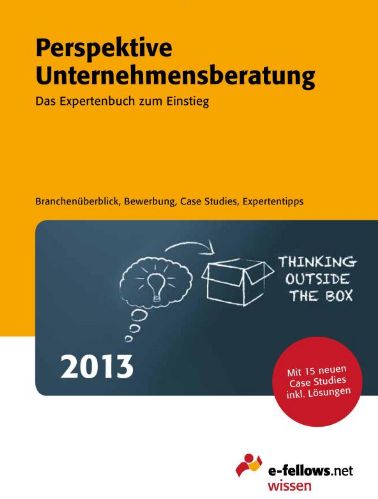
Interne Problemstellung
– Wertschöpfungskettenanalyse
– BCG-Matrix
Externe Problemstellung
– Porter’s Five Forces
– PESTEL-Analyse
Interne & Externe Problemstellung
– 4-C-Konzept
– 4-P-Konzept
– SWOT-Analyse
– Logikbaum
In den Jahren zuvor hatte ich Erfahrungsberichte geschrieben, die hier zu finden sind.
E-fellows Stipendiaten können das Buch hier kostenlos herunterladen.
Dhikr & Boxing
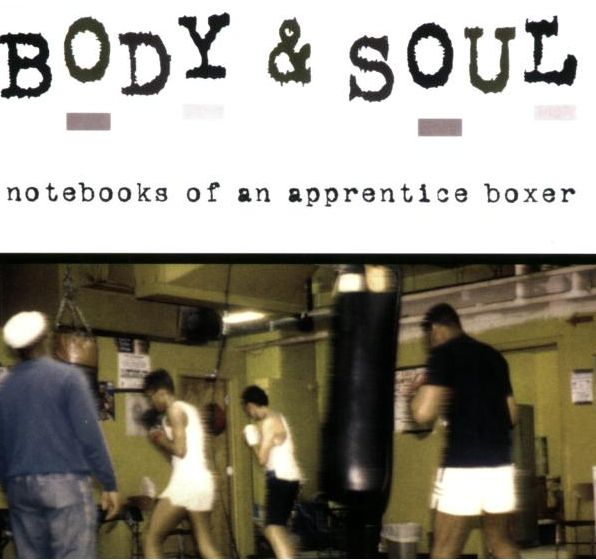 I have written an article for the forthcoming Special Issue of the Journal of Management Development. The overarching theme of the Special Issue is the Practical Wisdom for Management from the Islamic Tradition. In a former version of the article, I briefly compared my ethnographic experience in a Sufi Dhikr Circle, a mystical Islamic organization, with Wacquant’s experience as a participant-observer of boxing. This section did not make it into the final article. So here it is:
I have written an article for the forthcoming Special Issue of the Journal of Management Development. The overarching theme of the Special Issue is the Practical Wisdom for Management from the Islamic Tradition. In a former version of the article, I briefly compared my ethnographic experience in a Sufi Dhikr Circle, a mystical Islamic organization, with Wacquant’s experience as a participant-observer of boxing. This section did not make it into the final article. So here it is:
// Comparing ethnographic experiences
Much of the ethnographic experience resembles what Wacquant (2003) depicts in “Body and Soul”. Wacquant (2003, p. xi) describes the difficulty to depict anthropologically the practice of boxing: “how to account anthropologically for a practice that is so intensely corporeal, a culture that is thoroughly kinetic, a universe in which the most essential is transmitted, acquired, and deployed beneath language and consciousness…”. I feel equally in awe while the voice becomes a sound and rhythm mechanism and less a communication tool between humans. Communication through both read-singing and body movements occurs less between humans and rather between us and God, as well as between us and the environment pursuing what may be termed the “Unity of Existence (Lewin, 2000). The environment is not a religious décor, but actants which themselves perform religious practices like dhikr.
// Transcending the boundaries between physical & spiritual
Wacquant (2003, p. 17) continues to illustrate the difficulties in becoming a boxer: “…to become a boxer is to appropriate through progressive impregnation a set of corporeal mechanisms and mental schemata so intimately imbricated that they erase the distinction between the physical and the spiritual, between what pertains to athletic abilities and what belongs to moral capacities and will.” The activities during dhikr seem to have the same goal, to erase the distinction between the physical and the spiritual, between what the body and what the soul focuses on. The result, according to Wacquant (2003, p. 17), is that “[t]he boxer is a live gearing of the body and the mind that erases the boundary between reason and passion, explodes the opposition between action and representation, and in so doing transcends in actu the antinomy between the individual and the collective that underlies accepted theories of social action.” Equally, dhikr erases boundaries or merges the parts of the human being and merges the human with the Circle community and the environment, whereby the human becomes one with himself and with the social (humans) and non-social (environment) surroundings.
Wacquant, L. (2003), Body and Soul: Ethnographic Notebooks of an Apprentice Boxer, Oxford University Press: Oxford.


